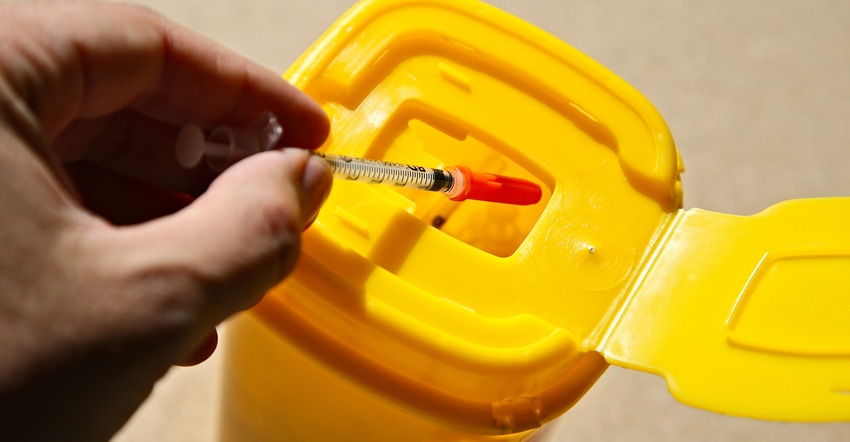Stericycle Shares Sustainability Best Practices for Healthcare Organizations Ahead of Earth Day 2023
April 20, 2023

BANNOCKBURN, Ill. -- In advance of Earth Day, April 22, 2023, Stericycle, Inc. (Nasdaq: SRCL), a leading provider of regulated medical waste management and secure information destruction solutions, is sharing best practices for healthcare organizations to consider as they evaluate their environmental footprint. Healthcare organizations not only have the obligation to protect the health and well-being of their communities through medical care but also through sustainable practices that help safeguard the environment.
The healthcare sector generates thousands of tons of waste per year doing crucial work. According to Stericycle's 2022 Healthcare Workplace Safety Trend Report, 56% of the healthcare providers surveyed agree that they think about the environmental impact of medical waste often, and 9 in 10 believe improper medical waste management is harmful to the environment and to patient health.
"It's important for healthcare organizations to understand their environmental impact and consider what enhancements can be made to their care ecosystem to improve their footprint," said Cory White, executive vice president and chief commercial officer at Stericycle. "We strive to help healthcare leaders address their regulated waste challenges and offer solutions to support their sustainability goals while helping protect their employees, patients and communities."
This Earth Day, healthcare organizations can take the following steps to sustainably manage their regulated medical waste.
Deploy reusable sharps containers rather than single use containers: Sharps waste has become increasingly prevalent since the COVID-19 pandemic, and a reusable sharps container is a convenient way to help organizations be more sustainable. A reusable sharps container reduces reliance on single-use plastic.
Dispose of pharmaceuticals properly to help protect waterways: Healthcare organizations should review their pharmaceutical disposal practices. Non-hazardous pharmaceutical wastes are often flushed or discarded with solid waste, which can cause active pharmaceutical ingredients to leach into landfills and waterways. Sending such waste for incineration with Stericycle prior to disposal can help reduce the environmental impact of these chemicals.
Seek a waste management partner that prioritizes sustainability: Healthcare organizations should find a partner that shares their sustainability goals and can provide innovative solutions that help solve their challenges. In 2022, Stericycle treated 1.5 billion pounds of medical waste to render it non-infectious prior to disposal, helped customers divert 101 million pounds of plastic from landfills by offering reusable containers, and treated 38 million pounds of pharmaceuticals prior to disposal to help keep active pharmaceutical ingredients out of waterways.
Promote a circular economy through paper shredding and recycling: The healthcare industry relies heavily on paper. Healthcare organizations can help promote a circular economy while also responsibly disposing of confidential documents. This includes storing papers in secure bins until a third-party service can pick them up and shred them before sending them to a company that recycles them into everyday paper products.
Stericycle is dedicated to offering practical solutions for healthcare organizations to support their sustainability efforts. For more information on these solutions, visit the Stericycle website.
About Stericycle
Stericycle, Inc., is a U.S. based business-to-business services company and leading provider of compliance-based solutions that protects people and brands, promotes health and well-being and safeguards the environment. Stericycle serves customers in the U.S. and 16 countries with solutions for regulated waste and compliance services and secure information destruction. For more information about Stericycle, please visit stericycle.com.
You May Also Like


